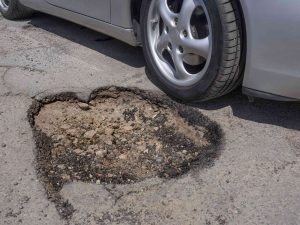Dealing with poor road conditions can be rough. Over time, roads become damaged and this could even be potentially dangerous. Transportation departments, engineers, and road crews all need to quickly and accurately know the conditions of a road in order to service them. This is where a ground-penetrating radar (GPR) contractor can come in handy. A GPR contractor can help discover what condition a roadway is in. It’s non-intrusive as well as reliable.
How Does GPR Work?
What your GPR contractor will do is run a machine over the area you need to examine. It then puts out a pulse using an antenna. The computer in the device records the strength of the reflected pulse and the time it took to return, which is what allows it to measure the size of the cavity or grave beneath the ground. GPR will essentially map out what is beneath the ground, including any spaces that are just empty–or spaces that are filled, like a grave.
Uses for Roadways
A GPR contractor can help determine what condition a roadway is in so that it can be repaired or replaced. It’s not very labor intensive and certainly cost-effective. It’s a pretty simple process. Field mechanics are able to send the result of their GPR scans in, at which point they’re cleaned up and reviewed by the client or structural engineer. GPR is incredibly powerful, capable of scanning up to 24” deep.
Is It Safe?
GPR is a better option than the traditional concrete core drilling for roadway inspection because it’s faster and safer. Unlike concrete x-ray, it releases no radiation and gives off very little signal. It’s also a better alternative because it can analyze base and subbase layers, giving you a better overall picture.
GPR Services from Concrete Visions
Concrete Visions has over 12 years of experience and expertise in concrete scanning and we know how to detect any problems lurking beneath the surface. We use ground penetrating radar accurately and expertly and are familiar with many other methods that can be used when appropriate like concrete x-ray and electromagnetic conductivity. We are also very familiar with the latest construction safety techniques and train all of our workers to do their work quickly, accurately, and safely. If you would like to learn more about how we can help you, give us a call at (410) 766-2210 or visit us online. For more articles and tips, follow us on Facebook, Twitter, LinkedIn, and Google+.

